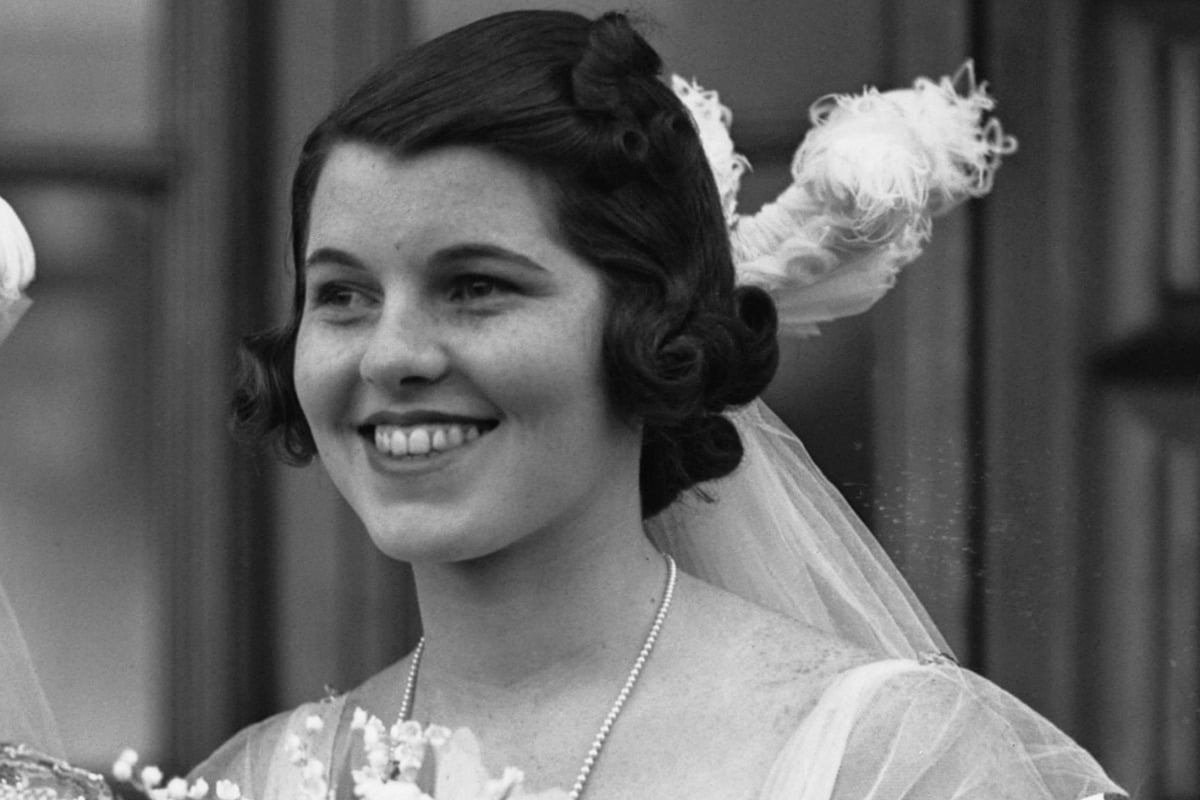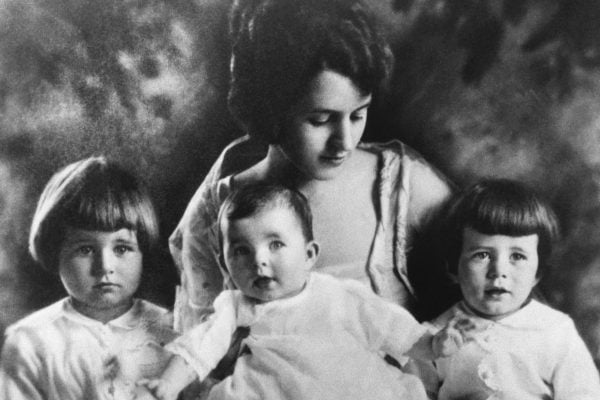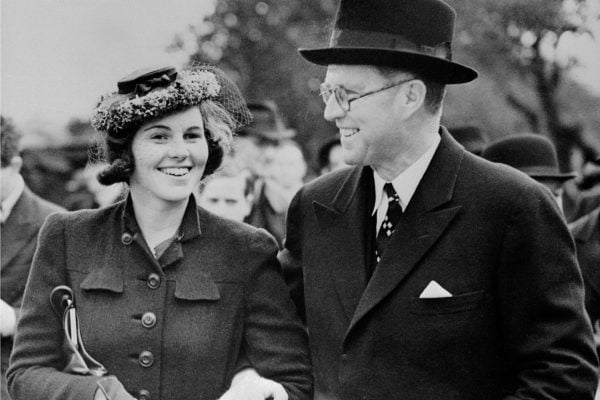
The new season of Mamamia's podcast Extraordinary Stories is all about the Kennedy women. You can listen to the first episode right here.
After U.S. President John F. Kennedy was shot dead during a 1963 visit to Dallas, Texas, his eldest sister, Rosemary, was among those glued to the television coverage.
There were no family members by her side, no one but the nuns who cared for her to comfort her through the horror.
While her family lived in the limelight, Rosemary Kennedy had been left to live in secret for more than two decades, confined to a Wisconsin facility for adults who need lifelong care.
Exiled. Hidden. Forgotten.
A private struggle.
Rosemary Kennedy’s birth was a traumatic one.
Listen to the first episode of the new season of Extraordinary Stories, The Kennedy Women. Post continues below.
Like her elder brothers, Joe Jr. and John, she was born at her parents’ sprawling Massachusetts home. Only, there was no doctor present when her mother, Rose, was ready to deliver her daughter in September 1918. The nurse, intent on waiting for help, ordered Rose to keep her legs together until the doctor arrived.
Rosemary was held inside the birth canal for two hours, deprived of vital oxygen.
It was a decision which many have speculated may have influenced the course of Rosemary’s entire life.



